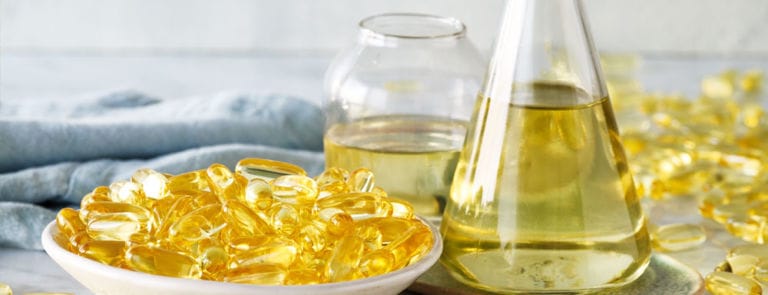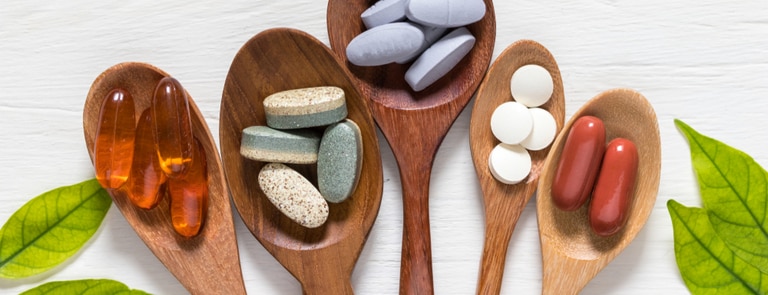10% off £35
Code:SAVE
Ginkgo biloba: benefits, dosage & side-effects

The ginkgo biloba tree has long been revered for its health properties. Discover the benefits of using the tree, dosage and possible side effects here.
Find out all about ginkgo biloba, including what it does, the benefits to taking it and how much you might need.
Written by Beth Gibbons on January 16, 2019 Reviewed by Carolina Brooks on January 27, 2019
What is ginkgo biloba and what does it do?
The ancient ginkgo biloba or maidenhair tree, native to China, has long been revered for its health properties. An extract made from the dried leaves has traditionally been used to treat blood disorders, enhance circulation, reduce memory problems and support eye health.1 It may also help maintain memory with age decline and improve quality of life in mild dementia.2
Scientists now know that ginkgo is rich in antioxidants, compounds that help protect our cells from damage caused by free radicals – also known as oxidation.3 It has been widely studied for its effect on age-related conditions such as heart disease, cognitive decline – in particular, issues with memory – and dementia.4,5 Ginkgo biloba is usually available as tablets, capsules or a tincture.
Benefits of ginkgo biloba
What does ginkgo biloba do in the body?
Ginkgo contains two important antioxidants – flavonoids and terpenoids.6 Flavonoids help protect the cells and tissues7 from oxidative stress, while terpenoids support circulation by dilating blood vessels and making blood platelets less ‘sticky’.8 Thanks to these properties, ginkgo may be helpful for:
- improving attention, memory and maintaining good cognitive function in older adults – a 2000 study discovered that healthy older adults taking 180mg of ginkgo biloba for six weeks had faster processing skills and improved memory function9
- tackling mild dementia – German researchers found that patients diagnosed with mild to moderate dementia, including Alzheimer’s disease, who took 240mg of ginkgo a day for six months had better memory and cognitive function than those taking a placebo10
- support circulation – people with Raynaud’s disease, a condition that restricts blood supply to the fingers and toes, who took ginkgo for 10 weeks experienced a reduction in the frequency of attacks by 56%11
- easing anxiety – according to a 2007 study in the Journal of Psychiatric Research, people with generalised anxiety disorder who took ginkgo supplements experienced greater relief from their symptoms after four weeks than those who took a placebo12 boosting libido – researchers from the University of Texas at Austin found that women who took ginkgo alongside sex therapy experienced an improvement in sexual desire compared with those who took a placebo13
- soothing tinnitus – several studies have shown that patients who experienced tinnitus (ringing in the ears) reported an improvement in their symptoms after taking ginkgo biloba, but more trials are needed to determine the effects on different types of tinnitus and with different dosages14,15
Dosage
How much ginkgo biloba is safe to take?
There is no safe upper limit for ginkgo biloba in the UK, but products tend to range in strength from 30mg to 500mg.16 A usual daily dose might be 240mg for adults and, as a general guide, should be taken for a minimum of eight weeks to see any effect.17 Make sure you read any instructions on the packaging or patient leaflet before taking. It is not advisable for pregnant or breast-feeding women to take ginkgo, as safety has not yet been established in these groups.18 Children under the age of 12 should not take ginkgo biloba, unless under medical supervision. Ginkgo can interact with certain drugs including:19
- antidepressants and anti-anxiety medications
- blood thinning medication, such as warfarin or aspirin – ginkgo can enhance their effects
- anticonvulsants – there is a risk gingko may trigger further seizures Non-steroidal anti-inflammatory drugs (NSAIDs)
- anti-virals
- diabetes drugs
- blood pressure medications
If you are taking medication for any reason, talk to your GP before taking ginkgo. The herb can limit a protein produced by the intestines, which may affect drug absorption and raise levels in the blood.20
Side-effects
What are the side-effects of taking ginkgo biloba?
Some people experience mild side-effects, such as:21
- nausea
- diarrhoea
- dizziness
- headaches
- stomach ache
- restlessness
- vomiting
Some people may experience allergic or sensitivity reactions.22 Stop taking ginkgo biloba if you experience any side-effects, and see your GP or a professional medical herbalist.
Advice is for information only and should not replace medical care. Please check with your GP before trying any remedies.
1. Joseph Nordqvist. Medical News Today. Health benefits of Ginkgo biloba
6. As above
8. As Source 4
17. As Source 2
19. As Source 2
20. As Source 2
21. As Source 2
22. As Source 2
Related Articles
Shop by wellness goal
Sign up for exclusive offers
Plus, get expert advice to support your health & wellness straight to your inbox when you sign up to Holland & Barrett emails.
Read our
privacy policy














